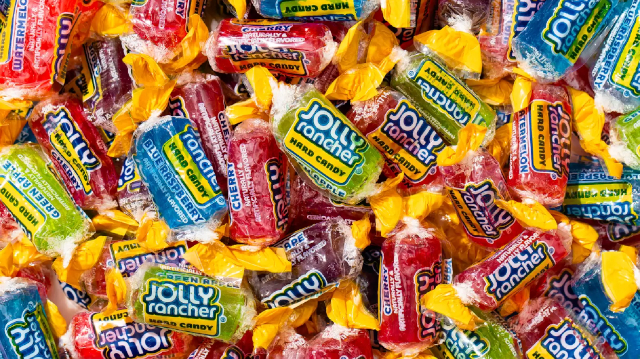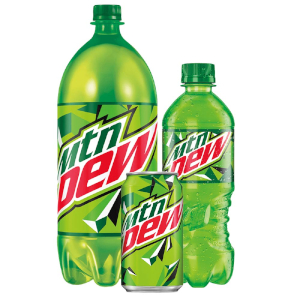I didn’t know this before. Didn’t even suspect it. But I found out, when grazing the Food & Wine magazine web-page this morning… Some common confections and bevs we enjoy over here are banned in the UK. Seems they contain ‘illegal’ ingredients…

What’s banned?
The Scotsman explains in detail what’s banned and why. It’s interesting to note that British Chartered Trading Standards Institute (CTSI) blames the upsurge in recent years of banned foods over social media coverage. The Internet knows no boundaries. (Unless you’re in China…) And the CTSI says one of their biggest problem areas is ‘American Candy’, which is increasingly being imported illegally into the UK to feed a ballooning demand.
“The American imported items that have been seized contained unauthorised additives not manufactured for the UK market,” The Scotsman says. “[I]ncluding [such common ingredients] as brominated vegetable oil, mineral oil – which carries the risk of contamination with other compounds, which in turn are capable of forming cancers – and bleached flour. Erythrosine, or E127, which is shown on US products as Red 3 and can contribute to hyperactivity, is allowed in cocktail cherries in the UK, but not in sweets.”
Products banned in the UK which we in North America consider innocent and harmless include: Mountain Dew, Sunny D, Dubble Bubble, Jolly Rancher (gummies and hard candy), Hot Tamales, Twizzlers and Lemonheads.
A major problem
Over the past year, the CTSA says it’s raided hundreds of small shops (which we would call ‘corner stores’) and even some High Street confectionery purveyors.
A CTSA spokesperson reported that last year, £25 million ($31 million) worth of American candies — many of which are illegal to sell in the UK — were, nevertheless, imported.
A storm over sprinkles
And it’s not just over-the-counter candy and beverages that are involved. Bakery owner Mitch Myers reports his shop got busted for using candy sprinkles that were on the banned list.
“”[The Trading Standards inspector] said they’d had reports of us using illegal sprinkles, and I actually laughed by mistake, then realized he was being serious,” Myers told the BBC at the time.
“It is HIGHLY unlikely that we will find any legal sprinkles that we will use as a replacement,” Myers wrote on Facebook. “British sprinkles just aren’t the same. They’re totally [crap] and I hate them. I am extremely passionate about sprinkles.”
Won’t be bowed
But those Brits won’t be bowed. The folks entrusted with protecting their countrymen from dietary danger take a high road and maintain a strict attitude to enforcement of the UK’s food rules.
CTSI chief executive, John Herriman, said: “The UK prides itself on high food standards but this very much relies on Trading Standards ensuring that what is on sale complies with the law. It’s therefore extremely worrying to learn that, as we approach Christmas, confectionery that we know will appeal to children is on sale in UK high streets, and that it could be linked to hyperactivity in kids, and even cancer.”
The CTSA notes that the Christmas season is when sales of confections traditionally peak.
“We ask that all persons placing these [illegal] products on the market, including the suppliers and retailers, take their responsibilities seriously in this matter and urgently remove items from sale that contain unauthorised ingredients,” Herriman added. “We also urge parents to be aware.”
My take
I have to wonder how serious a threat a few candies, a bottle of soda or – God forbid! – a shower of sprinkles over a doughnut might constitute to anyone’s health.
Okay. We get the point, CTSI. And I’m sure Brits do, too. The vast majority of us are reasonably- to exceptionally-well-educated people. We’re grown-ups who expect to take responsibility for our own decisions, and weigh our own risks versus benefits.
It struck me, writing this post, that this is a prime example of what the Brits call ‘The Nanny State’.
And I hasten remind readers that the ingredients over which the Brits are seizing ‘American’ products are considered safe and perfectly legal in the US and many other countries.
So, relax – and have another Mountain Dew…
~ Maggie J.

